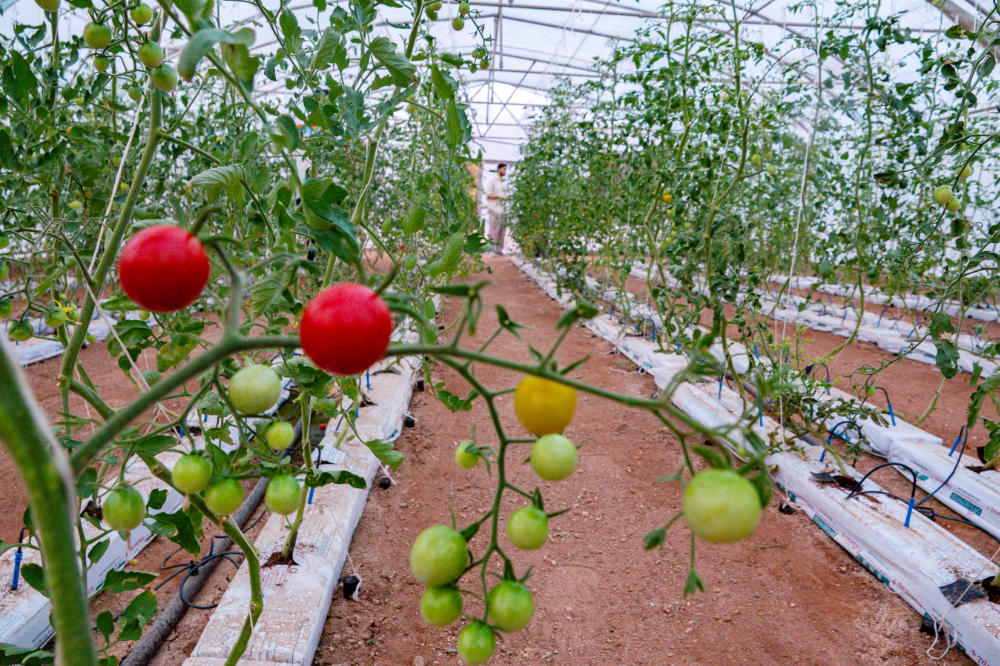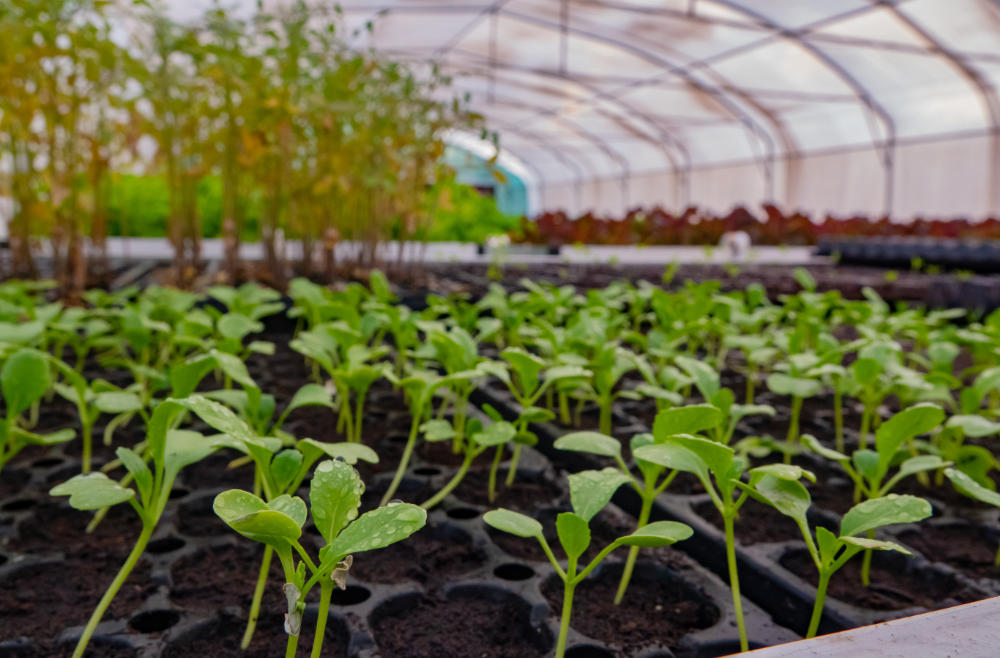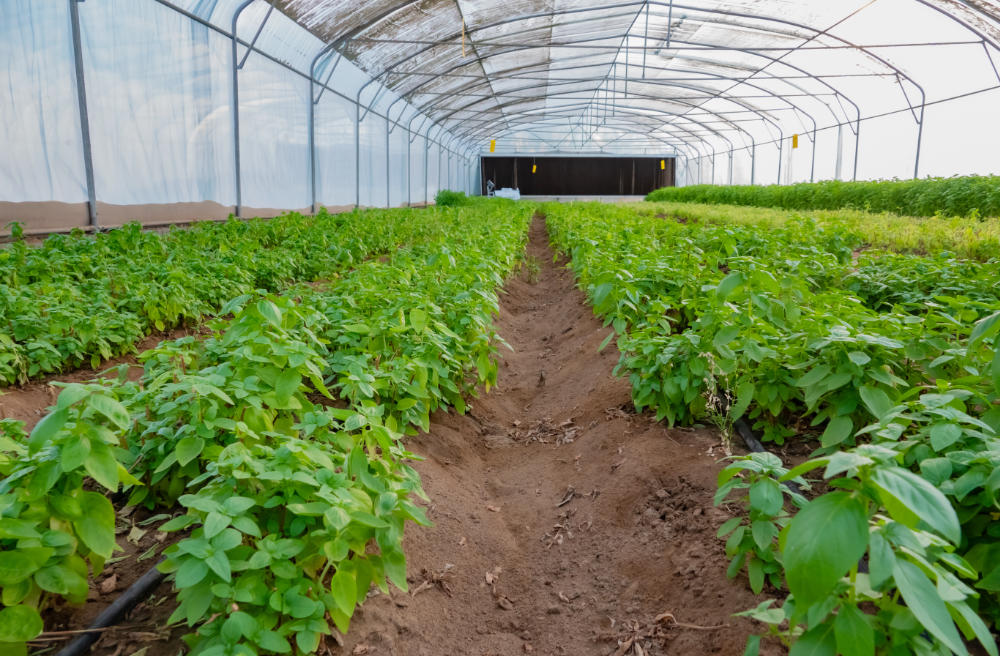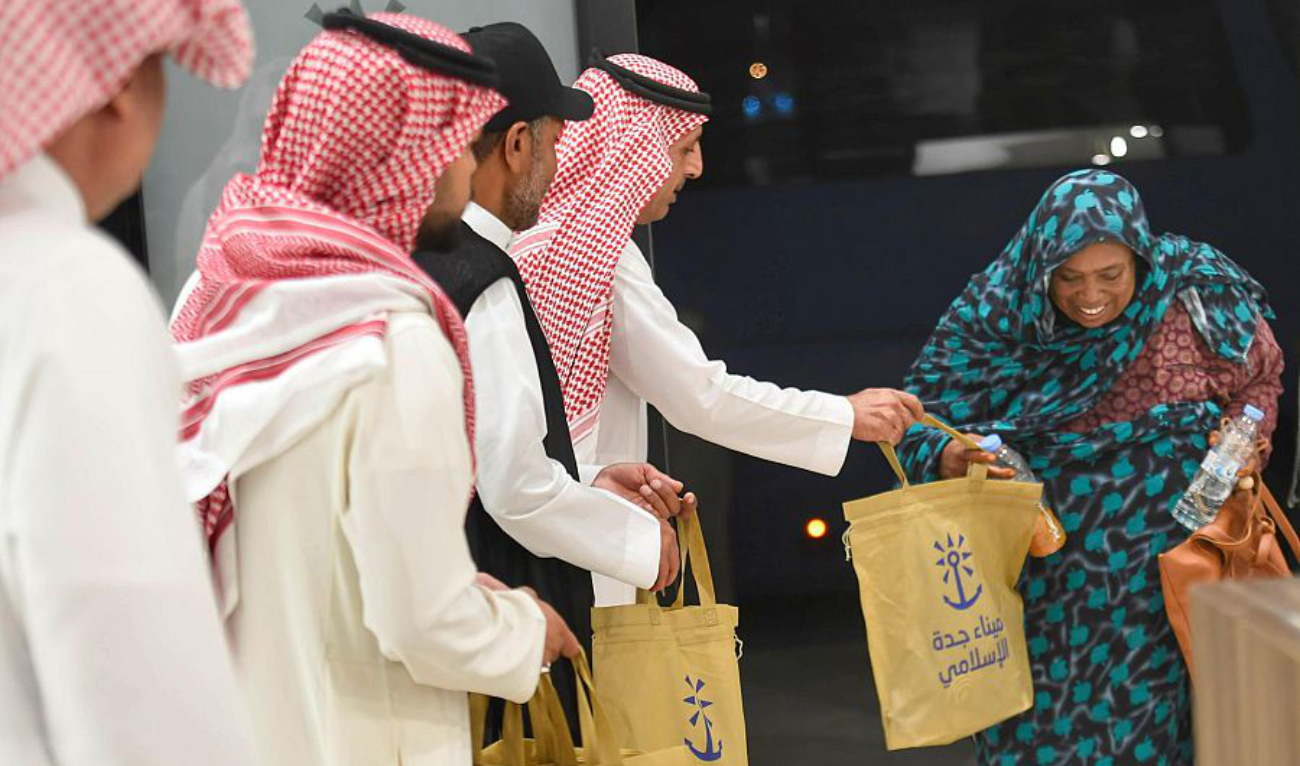KHULAIS: The last thing one expects to find in the middle of dusty and dry Khulais, located on the western side of the Saudi Arabian desert, is a farm blooming with all sorts of herbs and vegetables.
Yet this is exactly what Sofian Al-Bishri, the 24-year-old CEO of Mojan Farms, has done. The qualified engineer has proven that combining technical know-how with a little ingenuity can go a long way to fulfil his dream of greening the environment, while also running a sustainable business.
Al-Bishri explained to Arab News that despite the lack of water in the area, he was able to construct a full ecosystem using sustainable farming methods such as bumble-bee pollination, hydroponic saltwater technology, and a fully automated monitoring system.
On a 15,000-square-meter strip of family land, Al-Bishri established Mojan Farms in 2020 with five greenhouses, each containing a different type of herb or vegetable.
Hydroponic technology allows for the cultivation of crops without soil, with roots growing in a liquid nutrient solution or inside moist inert materials like Rockwool and Vermiculite.
HIGHLIGHT
Despite the lack of water in the area, Sofian Al-Bishri was able to construct a full ecosystem using sustainable farming methods such as bumble- bee pollination, hydroponic saltwater technology, and a fully automated monitoring system.
The water of the liquid nutrient solution is a mixture of essential plant food, allowing faster crop growth than traditional planting methods.
The farm has various crops, including basil, Japanese cabbage, lettuce and cherry tomatoes. “Every house is a separate ecosystem. We do this to eliminate cross-contamination, so each house is separate and has its designated variety.”
Mojan Farms is environmentally friendly because the system captures and reuses water, rather than allowing it to drain away. “We use drip irrigation, it reduces the water usage by 40 percent, and we work with a company locally that produces biopolymers, which are formed into gels that we have under the ground right now.”
“When talking about wasted water, the problem is when you irrigate the crops, the water just gets drained down. It doesn’t get retained in the soil. So these polymers hold the water which transforms into a gel full of water, allowing enough time for the plant to absorb it, so we get to irrigate much less.”
There is also considerable automation in place, which allows for cooling and irrigation. “We need to believe in research and data, this is our game. I invested in some retrofitted tech from other industries to cut down on labor requirements and time.”
Instead of having an engineer constantly monitor water usage and the spreading of fertilizers, Mojan’s greenhouses are equipped with a sensor system.
“All of these smart devices that we have are automatically connected to the cloud, it all tunes into risk management, so we protect ourselves from any loss of crops.”
Al-Bishri said that he grows crops that are in demand by industry, and is constantly gathering data, sometimes over months, from restaurants, distributors and importers. “So we find those strains that are usually imported, and we find ways to grow them locally.”
Al-Bishri said his farms produce 300 to 400 kilograms of produce ever month. He chooses to grow some Italian strains such as Genovese basil which is different from local ones. In addition, he produces Lola Rossa and Lollo Bionda lettuces, both red Italian types, used mostly to garnish burgers.
He has now decided to go public with his operation. “This farm has been private, it’s just for my father and me, we just come here in winter … we decided we had enough entertainment here … and it’s time to share (this project).”
He also plans to plant over 3,000 mango trees as a long-term investment. “Within two years, we’re hoping that it will provide enough shade for us to create artificial lakes and open that for picnics and for the public and families, and to make it an actual park.”
“And the reason we’ve decided to do this now, as opposed to before, is that we’re actually now working with a local startup to provide tech for that strip of land that reduces water by 80 percent, which means we can do it at a more sustainable rate. That’s both good for me and good for the environment.”


